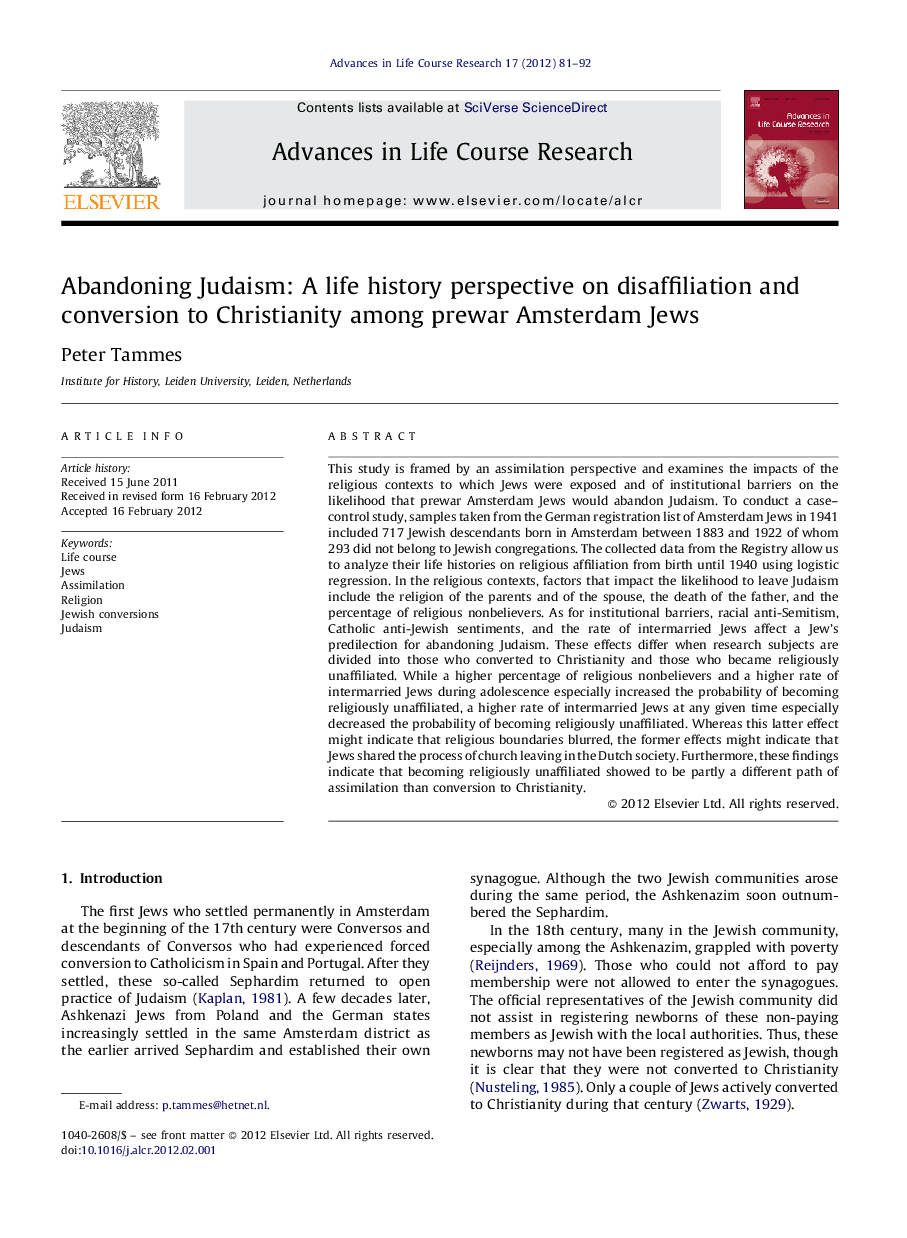| Article ID | Journal | Published Year | Pages | File Type |
|---|---|---|---|---|
| 311642 | Advances in Life Course Research | 2012 | 12 Pages |
This study is framed by an assimilation perspective and examines the impacts of the religious contexts to which Jews were exposed and of institutional barriers on the likelihood that prewar Amsterdam Jews would abandon Judaism. To conduct a case–control study, samples taken from the German registration list of Amsterdam Jews in 1941 included 717 Jewish descendants born in Amsterdam between 1883 and 1922 of whom 293 did not belong to Jewish congregations. The collected data from the Registry allow us to analyze their life histories on religious affiliation from birth until 1940 using logistic regression. In the religious contexts, factors that impact the likelihood to leave Judaism include the religion of the parents and of the spouse, the death of the father, and the percentage of religious nonbelievers. As for institutional barriers, racial anti-Semitism, Catholic anti-Jewish sentiments, and the rate of intermarried Jews affect a Jew's predilection for abandoning Judaism. These effects differ when research subjects are divided into those who converted to Christianity and those who became religiously unaffiliated. While a higher percentage of religious nonbelievers and a higher rate of intermarried Jews during adolescence especially increased the probability of becoming religiously unaffiliated, a higher rate of intermarried Jews at any given time especially decreased the probability of becoming religiously unaffiliated. Whereas this latter effect might indicate that religious boundaries blurred, the former effects might indicate that Jews shared the process of church leaving in the Dutch society. Furthermore, these findings indicate that becoming religiously unaffiliated showed to be partly a different path of assimilation than conversion to Christianity.
